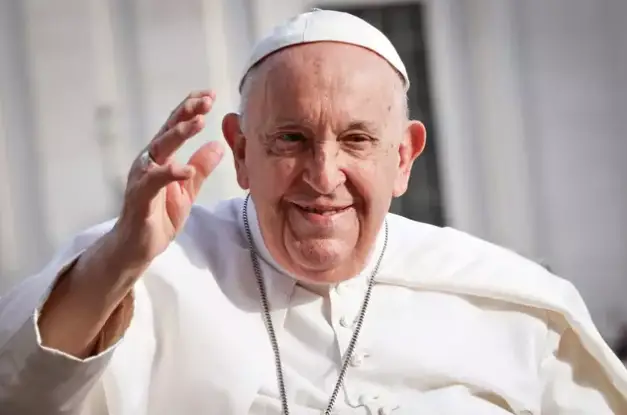With solemn words, Cardinal Kevin Farrell announced the death of Pope Francis, saying that the beloved pontiff had “returned to the home of the Father.” As the first Latin American to hold the position, Pope Francis’s passing on April 21, 2025, at the age of 88, marked the end of a papacy that had transformed the public face of the Catholic Church.
“His entire life was dedicated to the service of the Lord and of his Church,” Cardinal Farrell said in his statement, paying tribute to a man who had redefined what it meant to lead with humility and compassion. “He taught us to live the values of the Gospel with faithfulness, courage, and universal love, especially for the poorest and most marginalized.”
With emotion in his voice, Cardinal Farrell concluded by entrusting Francis’s soul “to the infinite, merciful love of God, One and Tribune,” expressing deep gratitude for a life led in devoted discipleship.
Born Jorge Mario Bergoglio in Buenos Aires, Argentina, Pope Francis’s health had been deteriorating in recent months. After battling a persistent respiratory infection and chronic bronchitis, he developed pneumonia and was hospitalized at Rome’s Gemelli Hospital in February. His 38-day stay was the longest of his twelve-year papacy, prompting concern among Catholics worldwide.
Despite his frailty, the Pope continued to fulfill his duties as best he could, showing up—when possible—for public blessings, meetings, and liturgical moments. His final public appearance came just one day before his passing. On Easter Sunday, he emerged from St. Peter’s Basilica to greet thousands of faithful gathered in the square below. He waved, smiled, and gave his blessing, even though his voice was faint and his movements slow.
That appearance, it turns out, was a farewell in disguise. Just hours later, he fell into a coma after suffering a massive stroke. He passed peacefully in the early hours of Monday morning at his residence in Casa Santa Marta, surrounded by silence and the traditions of Vatican protocol.
Amid the outpouring of grief, what caught many by surprise was a detail that surfaced not about his teachings, but about his personal finances. According to several reports, Pope Francis left behind a net worth estimated at $16 million. This revelation raised eyebrows, considering that Francis famously gave up receiving a papal salary upon his election in 2013. From the very beginning, he declared his intention to live a life of simplicity, and by all visible accounts, he honored that vow.
Unlike many of his predecessors who resided in the ornate Papal Apartments of the Apostolic Palace, Francis chose to live in a modest two-room suite in the Domus Sanctae Marthae — the Vatican guesthouse typically reserved for visiting clergy. He dined in the communal cafeteria and rejected luxury in favor of closeness to others. Yet, as head of the Catholic Church, he still had access to certain financial resources.
The Economic Times reports that his wealth may have accumulated through royalties from published works, private donations, and access to a discretionary annual fund of $385,000 as pope. These figures, however, do not necessarily reflect personal indulgence but instead highlight the complexity of managing finances within the Vatican structure — where the distinction between institutional and personal wealth is often blurred.
Pope Francis’s final official engagement was a meeting with U.S. Vice President JD Vance, which took place on the same day as his Easter address. Vance later posted a heartfelt tribute, acknowledging the pope’s visible frailty during their brief encounter. “I just learned of the passing of Pope Francis. My heart goes out to the millions of Christians all over the world who loved him,” he wrote on social media. “I was happy to see him yesterday, though he was obviously very ill.”
In a follow-up message, Vance reflected on one of the Pope’s most poignant homilies from the early days of the COVID-19 pandemic, describing it as “really quite beautiful.” That moment, like so many others from Francis’s papacy, captured the essence of a leader who offered comfort during the world’s darkest hours.
Pope Francis’s legacy is one defined not by wealth or power, but by moral clarity and human connection. Even in his death, the rituals of Vatican tradition and the testimonies of leaders and laypeople alike speak to a man who never forgot his calling: to serve the people with humility, to speak truth with courage, and to walk closely with the poor and the forgotten.






